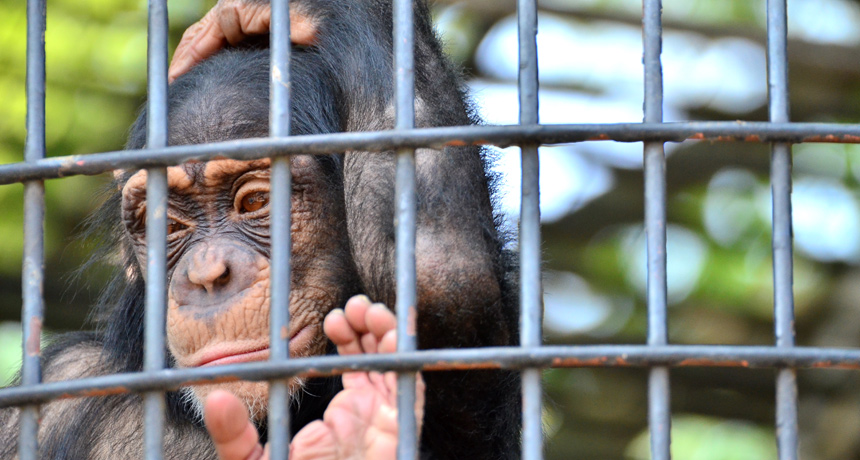Chimps in captivity may soon join endangered species list
Proposal would extend protections to both wild and captive primate populations

PRIMATE PROTECTION All chimps, including ones held in captivity for medical research, may soon qualify for protection under the Endangered Species Act, according to a new rule proposed by the U.S. Fish and Wildlife Service.
Toshihiro Gamo/Flickr







